Search Results
Showing results 1 to 20 of 27
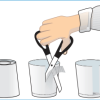
Cleaning Water with Dirt
Source Institutions
In this activity on page 7 of the PDF (Water in Our World), learners make their own water treatment systems for cleaning water.
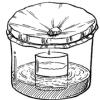
Rain Machine (Solar Still)
Source Institutions
In this activity, learners work in groups to build simple solar stills filled with salt water. After the stills are complete, learners observe what happens when they place the stills in the sun.
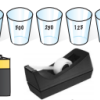
Water Wire: Electricity Flowing Through Water
Source Institutions
In this activity on page 10 of the PDF, learners detect the amount of energy that can flow through a sodium chloride electrolyte solution with a light sensor.
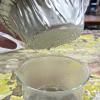
Wonderful Weather
Source Institutions
In this activity, learners conduct three experiments to examine temperature, the different stages of the water cycle, and how convection creates wind.

OBIS Oil Spill
Source Institutions
In this outdoor activity, learners simulate an oil spill using popcorn (both oil and popcorn float on water), and estimate the spill's impact on the environment.
Build A Hydrometer
Source Institutions
In this activity, learners will explore how a hydrometer works by building a working model and conducting experiments.
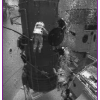
Weighty Questions
Source Institutions
In this activity about humans and space travel (page 1 of PDF), learners compare and contrast the behavior of a water-filled plastic bag, both outside and inside of a container of water.
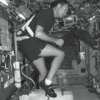
Challenge: Microgravity
Source Institutions
In this activity about the circulatory system and space travel (on page 38 of the PDF), learners use water balloons to simulate the effects of gravity and microgravity on fluid distribution in the bod

Sand Castle Saturation
Source Institutions
In this activity about saturation (page 1 of PDF under SciGirls Activity: Sand Dunes), learners will build a series of sand castle towers using a 16 oz cup.

Great Steamboat Race
Source Institutions
In this outdoor activity, learners race small boats, made of cork, balsa wood, popsicle sticks etc., to investigate the rate and direction of currents in a stream or creek.
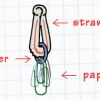
Deep Sea Diver
Source Institutions
In this ocean engineering activity, learners explore buoyancy and water displacement. Then, learners design models of deep sea divers that are neutrally buoyant.
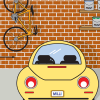
Avi's Sensational Salt Dough
Source Institutions
In this activity on page 5 of the PDF, learners mimic the process for making bricks. Learners shape and bake creations from a dough that is made from flour, salt, and water.

Building A Storm Drain
Source Institutions
In this design challenge, learners design a storm drain cover that catches litter to protect waterways to learn about how local actions can have system-level effects.
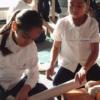
Invent on the Spot
Source Institutions
In this activity, learners design a device to solve a problem: how to get a ball out of a drain pipe.
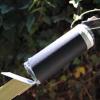
Periscope
Source Institutions
In this activity, learners construct a device that allows them to look over ledges or around corners.

Solar Cooker
Source Institutions
Learners build a simple solar oven from a shoebox, black construction paper, and aluminum foil. Over the course of a few hours, the oven heats up water enough to brew tea.
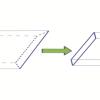
The Shape of Floatation
Source Institutions
In this activity (on page 2 of the PDF under GPS: Sailboat Design Activity), learners will discover how the shape of an object, not just its weight, determines whether it floats or sinks.

Float My Boat
Source Institutions
In this activity, learners use tinfoil to build and test their own boats - which designs will float, and which will sink?

Urine the Know
Source Institutions
In this activity on page 5 of the PDF, learners compare water with artificial urine to see how urinalysis works. Learners use urinalysis test strips to test for glucose and protein in the fake urine.
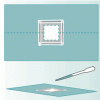
Tools of Magnification
Source Institutions
In this activity related to microbes, learners use water drops and hand lenses to begin the exploration of magnification. This activity also introduces learners to the microscope.
